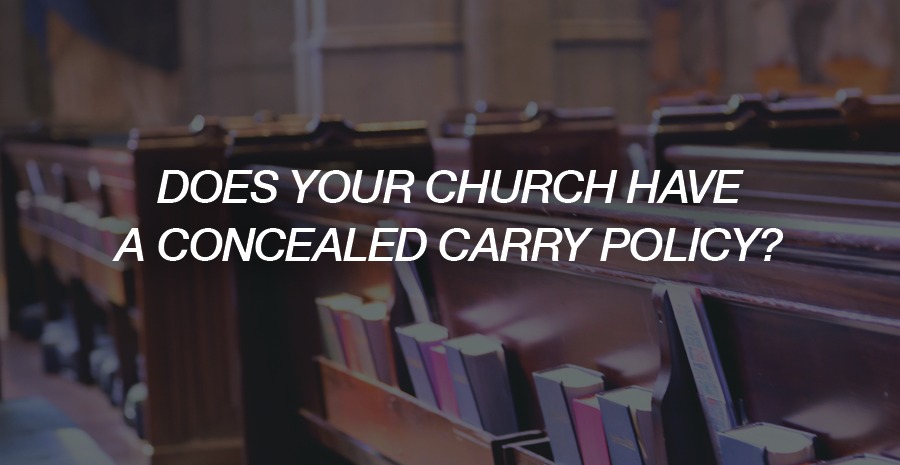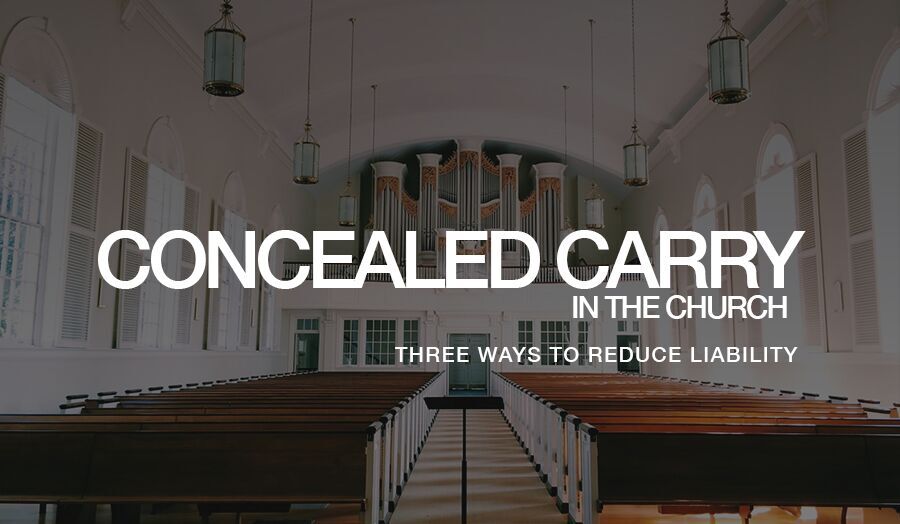With the recent tragedy at the church in South Carolina, this post from one of our sponsors helps equip our churches to answer an important question. People and churches are all over the map when it comes to issues of gun safety and concealed carry. These are certainly difficult issues, and we at B21 are thankful for Church Counsel and their efforts to help equip us to think through these questions well as we seek both physical and legal protection for our churches. ———
 I want to give you some thought-provoking strategies to protect your church. When you begin to consider whether or not to allow concealed carry in your church, you must first research the laws in your state. Does your state allow concealed carry?
I want to give you some thought-provoking strategies to protect your church. When you begin to consider whether or not to allow concealed carry in your church, you must first research the laws in your state. Does your state allow concealed carry?  There are three common categories:
There are three common categories:
- Cannot carry
- Can carry with church permission
- Can carry as long as church does not prohibit
Once you learn what is allowed in your state, you can proceed with decision making for your own church. Let’s face it – the church is at a crossroads that it has not been at in centuries. The church is less revered then ever, and even as recent events have transpired, people (even your own members) are willing to sue the church more often than ever because the church is viewed as having “deep pockets.” While this may not be true in your church’s case, it is the predominant view. So let’s contemplate how it is going to look and proceed with wisdom where appropriate. As we look at the options your church has, we will be looking at this from a practical and a liability perspective. Part of my job as legal counsel for churches is to help them figure out their liability. There are four options for your church. They are:
- Allow (if law allows) anyone with a CCL (concealed carry license) to carry within the church. The benefit to this option is that there is less liability to the church because there is not a direct connection with the people who are carrying if an event happened (unless those carrying are staff members.) So with this option, no one needs approval, and each person takes responsibilities for their own actions. The risk is that it opens up all areas of your church to the “potential of guns being everywhere.” You will not know who is carrying or where guns are.
- Restrict everyone from carrying, but allow specific approved persons to carry. The benefit to this option is that we know and limit who is able to carry. The risk here is that you could face some sort of suit because of claimed negligence in the approval process or, worse yet, you as the church are deemed to have an agent in this person – therefore there is direct liability.
- Hire only off-duty police or the like to be at your church when the doors are open. The benefit here is that you will have trained professionals on private assignment at your church. One downside is that there is a financial commitment to this plan. However, there could be a combination plan where you hire some off-duty officers along with the creation of your own Security Team. Communication is key for this plan in order for the officers to know the members of your team. If communication isn’t clear, additional liability will be created.
- No one carries except law enforcement who happen to be there. The benefit to this plan is that there is no direct liability link between the church and the person who might use their gun. However, the downside is that the church must still figure out a plan to provide reasonable security or liability still exists.
One of the major challenges is the Communication of the Policy. We need to clearly communicate, and we do this in three ways:
- In our Policies & Procedures
- Notices on Doors
- Internally with Staff/Security

Finally, let’s look at Three Practical Ways to Reduce Liability. Statistics say that more people think we should have guns in church than not. So, in regards to reducing liability, here are three important considerations:
- Hire off-duty law enforcement. This is one of the most secure options for your church and reduces liability greatly.
- Post clear notices regarding your church’s policy. It is important to post both physical notices and also electronic ones on the website. This gives the church and community clear communication.
- Don’t allow people to carry who are not extraordinarily qualified, both in the proficient use of a firearm and also in the ability to make critical split-second decisions. Having a trained Security Team could be a great answer for your church.
Ultimately, your church must make a decision that is best for your particular situation. I hope that these guidelines will help you sort through the liability issues. If your church is interested in pursuing this, Church Counsel would be happy to help you establish a Concealed Carry Policy.
